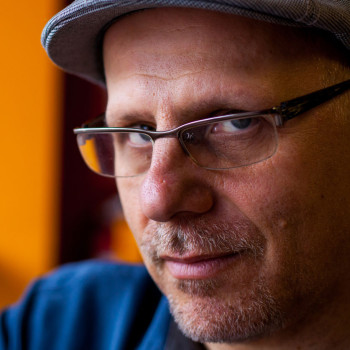In our “Chattering Class” segment, we’re schooled by an expert on some party-worthy topic. The topic this week: geniuses… and specifically why certain cities, at certain times in history, seem to breed them.
Our expert on the subject is Eric Weiner — a travel writer and former correspondent for NPR. For his new book, “The Geography of Genius,” he traveled the world visiting current and former “genius clusters” — places which at some point in history were lousy with geniuses.
Which begs the question: how does one define “genius”? For Eric, it has to do with something he calls “Fashionista Theory.”
“That’s my own take on a theory that’s out there,” he explained to Rico. “It’s the idea that a genius is someone who we declare to be a genius. You know, you wouldn’t say there’s good fashion and bad fashion. There’s just something that’s fashionable or it’s not. And it changes. Genius, I believe, is a lot like that.”
Interview Highlights:

Genius is a social verdict
Eric Weiner: If someone is painting a work of art and they’re convinced it’s the absolute best thing since Leonardo da Vinci, but no one agrees with him, and no art gallery will display it, are they a genius? I would argue they’re not. Because we have to have to have arbiters of genius and of creativity, and that is generally us. There really isn’t any such thing as an undiscovered genius. It’s a social verdict.
Hopefully, we get it right and we choose people who produce something new and surprising and useful. And those happen to be the three criteria for getting a U.S. patent, by the way. You have to meet those three.
Ancient Greece was chaotic … and that actually helped foster genius
Eric Weiner: The Agora — which was the marketplace in Athens — was this hugely chaotic place where people were hawking things and there were thieves and there were storytellers and philosophers selling their oratorical skills as well.
It was not a very orderly place at all. I mean, that’s the irony because the Greeks sort of brought us rational thought. But the layout of their main city, Athens, was pretty irrational.
I do conclude that, you know, it takes a degree of disorder to make one of these “genius clusters.”
Calcutta is a prime example of what Weiner calls the “different flavors of genius.”
Eric Weiner: You know, there are different flavors of genius. And they’re not just Western. There’s a Chinese flavor and there’s an Indian flavor. And Calcutta in the — we’re talking late 19th-early 20th century — was home of what’s called the Bengal Renaissance.
[Calcutta produced] scientific genius, literary genius, the world’s first non-Westerner to win the Nobel Prize for literature — a poet named Tagore. And they published more books in Calcutta at that time than almost any place in the world, with the exception being London. It had its moment in the sun.
![Portrait of Albert Einstein (left) and Rabindranath Tagore [Public domain], via Wikimedia Commons](../wp-content/uploads/2016/01/Einstein_and_Tagore_Berlin_14_July_1930.jpg)
You can’t have geniuses if you have closed borders
Eric Weiner: All these places of genius, or “genius clusters,” they’re open to outside ideas. They’re often crosscurrents of trade of goods. And once you’re trading goods, ideas — as I say in the book — are stowaways. Which is why dictatorships like North Korea try very hard to restrict trade. Because they know once you let the stuff in, the ideas probably can’t be far behind.
One physiologist at University of California Davis looked very carefully at Japan, a country that’s, traditionally, been pretty closed… An island with an island mentality that they, you know, were closed to outsiders. But they would occasionally open the doors.
So he looked at Japan from roughly 500 to the year 1900 — a huge swath of time — and he found a direct correlation that the more they opened their borders, the more creative brilliance you saw in all kinds of fields. In the arts, the sciences.
Which is not to say that immigration and open-door policy doesn’t lead to messiness, doesn’t lead to some real problems. But, look at the roster of excellence: Einstein and Victor Hugo and Marie Currie. All immigrants and/or refugees. And I don’t think that’s a coincidence.
Disasters breed brilliance
Eric Weiner: These genius clusters almost always followed some catastrophe. In Florence, it was the Black Death, the Bubonic Plague. And not even 50 years later, boom! You’ve got the Renaissance.
In Edinburgh, in Scotland, they were swallowed up by England, lost their independence… and then, boom! Scottish Enlightenment.
It shakes things up. Athens was sacked by the Persians in the Persian War — and that allowed them to say, “Hey! Let’s rebuild it even better!” And that’s when they build the Acropolis.

Bonus: Our co-host is a genius.
Eric Weiner: As far as geniuses themselves, the individuals, they are more likely to be an only child.
Rico Gagliano: Hey! Perfect for me! This explains everything.
Eric Weiner: There you go! And often their first names begin with the letter R …
Rico Gagliano: Crazy.
Eric Weiner: … And they live in L.A…
Rico Gagliano: They have radio shows.
Eric Weiner: … They have radio shows and podcasts.
Rico Gagliano: This all checks out. This feels right.


